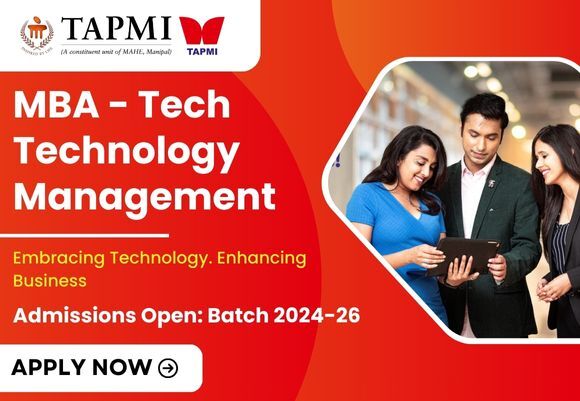Published : Friday, 20 February, 2015 02:46 PM
Scholars and Researchers from Across the Globe Assemble Under One Roof to Discuss the Digital Future
MICA, India’s premiere management institute in Strategic Marketing and Communication, today commenced its three day annual International Communication Management Conference 2015 (ICMC 2015) on “Digital Future: Content, Community & Communication”. Held at their campus in Ahmedabad, the conference was inaugurated by Prof. Renee Hobbs, University of Rhode Island, USA, Prof. Mohan J. Dutta, National University of Singapore, Dr. Nagesh Rao- President & Director, MICA and Prof. T. T. Sreekumar- ICMC 2015 Conference Chair, MICA.
The inaugural session saw insightful deliberations pertaining to the impact of digital communication on the youth, education and society in general. Prof. Hobbs during her inaugural address pointed out; it is imperative that the focus is on competencies and skills the children require for assimilating and communicating through the digital medium in the future. The skills are highly necessary as the children and youth are not just audiences but are also content creators. From an educational standpoint, it is necessary that the teachers realize that education becomes a highly engaging experience when it is premised on digital technology. Indian education system currently needs to fill up this gap in the adoption of digital communication at the earliest.

Prof. Mohan J. Dutta, National University of Singapore during his keynote address questioned certain kinds of messages that get created, circulated and propagated in the digital space. He stressed that Nations have recreated themselves in new form and new strategies. Landscapes of inequalities in India are the best proof; also being a communicative inequality. Communicative engagements in such cases end up producing more inequality and marginalization of the poor.

Speaking on the occasion Dr. Nagesh Rao, - President & Director, MICA, said, “Digital Media has always been a subject of intrigue and deep interest for us at MICA. We have to be conscious about the lives that do not have access to the digital and thus understand how the digital divide can be bridged in a country like India. We hope that over the next three days, we be able to dialogue with an open mind, a loving heart and a reflective soul about the various benefits along with the pros and cons digital media brings on to the table.”

Speaking on the occasion Prof. Renne Hobbs, , University of Rhode Island, USA said, “It is great to be a part of MICA’s ICMC 2015 as it gives a platform for scholars, researchers and sectors experts to present their views on the dynamic world of Digital Communication. India is representative of the potential for the medium and the lasting impact it will wield in years to come. Digital competency, democratized participation and self-aware modalities are necessary to ensure that greater intercultural penetration translates into greater intercultural & enrichment.”

Additionally, Day 1 of the conference also saw views and paper presentations on multiple topics by:
- Sirkku Kotilainen, University of Tampere, Finland: Media and information literacies as the basis for youth civic participation
- Melissa Fitch, University of Arizona, USA: Global queer digital activism
- Nimmi Rangaswamy, Xerox Research Center, India: Learning to bridge the digital gap - Social Networking and the Youth Sub-Stratum in Urban India
- Mou Mukherjee Das, Aliah University, India: Social media and the reconceptualization of public sphere for opinion generation- an analysis
- Ahammed Junaid N. P. & Santosh Patra, MICA, India: Promise and challenges of internet to bring a new public sphere: Exploring the case of right thinkers, a Facebook discussion group in Malayalam
- Manisha Pathak-Shelat, MICA, India: Transcultural citizenship: Negotiation of the local and the global civic identities
- Prasanna Hulikavi, Radhika Ingale & Suneeta Kulkarni, Symbiosis Institute of Media and Communication- PG, India: Assistive media strategies to facilitate children’s learning; A study of ”The Granny Cloud”
- Nandini Lakshmikantha, Manipal University, India & Shilpa Kalyan, Presidency College, India: Effectiveness of new media as a tool of edu-entertainment among school children
- Shobha Vadrevu, National University of Singapore, Singapore: Pedagogy, technology and agency in Singapore: Constructing the technological citizen
- Niti Chopra, M.S. University, India: Making journalism education relevant to a digital future
- Haripriya Narasimhan, IIT- Hyderabad, India: Going virtual, maneuvering control: an ethnography of online fans of television soap-operas in India
- Rashmi Tapariya, MICA, India: Understanding and differentiating the online purchasing behavior between males and females
- Kulveen Trehan, Guru Gobind Singh Indraprasth University, India: New media advocacy and gender rights: Decoding the power of online media in advocating women issues in India
- Aanchal Sharma & Santosh Patra, MICA, India: Notion of physicality and empowerment: an exploratory study of women empowerment in cyber space
- Palak Gadhiya, MICA, India: Usage patterns of social media among housewives
- B. Radha & P. Govindaraju, Manonmaniam Sundaranar University, India: Online commenting patterns on news reports on violence against women in India
- Syed Murtaza Alfarid Hussain, Assam University, India: Social Media: Front stage of identity performance - Applying Goffman’s performance theory to online ‘self’ presentation
- Ayesha Tahera Rashid, Assam University, India: Social media and psychological well-being An analysis of the self-esteem and life satisfaction of Facebook users
- Swatantra, IIM Indore, India & Sonam Mehta, Dayalbagh Educational Institute, India: You like, they like, and I like: Self-esteem and narcissism of the users of social networking sites
- Anusuah R. & Balasubramania Raja, Manonmaniam Sundaranar University, India: Self disclosure in Facebook: Teenagers and risks
The day concluded with a poster presentation session encompassing the ICMC 2015 theme.
About ICMC
MICA has pioneered an Annual Conference series on themes and issues pertaining to Communication Management. Launched in 2014 with the theme of ‘Managing Health Communication: People, Programmes and Products’, the conference series provide a platform for bringing together scholars, activists and practitioners, to discuss frontier developments in communication theories and practices. Each conference has a thematic outline, inviting scholarly contributions around the focal theme. Papers conceptualising perennial and emerging issues in communication management would also be included. The idea takes into cognizance the significance of multiple linkages of interdisciplinary and critical scholarship in communication management.
About ICMC
MICA has pioneered an Annual Conference series on themes and issues pertaining to Communication Management. Launched in 2014 with the theme of ‘Managing Health Communication: People, Programmes and Products’, the conference series provide a platform for bringing together scholars, activists and practitioners, to discuss frontier developments in communication theories and practices. Each conference has a thematic outline, inviting scholarly contributions around the focal theme. Papers conceptualising perennial and emerging issues in communication management would also be included. The idea takes into cognizance the significance of multiple linkages of interdisciplinary and critical scholarship in communication management.

About MICA
Established in 1991, MICA is the first residential institute in the country and perhaps in the Asia-Pacific region, dedicated to creating Leadership in Strategic Marketing and Communication.

Its spirit lies in its grasping of contemporariness, addressing the needs of an ever-changing environment. The MICA brand assures effective delivery of Strategic Marketing and Communication solutions to the industry, government and community.
Today, it is the alma mater of professionals serving in leadership positions in some of the best known companies in India and the world, in marketing, brand management, research & analytics, advertising, media, digital and other strategic marketing and communication-driven businesses.
Stay ahead and stay inspired with MBA Rendezvous

